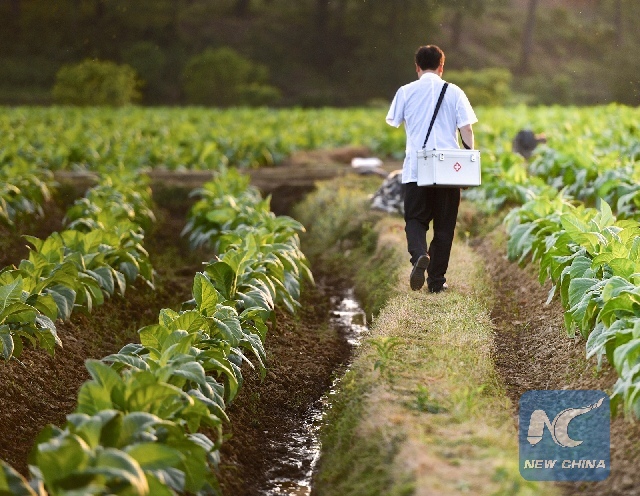
Li Yan is walking through farmland fields to visit a patient. (Xinhua/Hu Chenhuan)
It was an emergency call. Li Yan put the phone down, slung his medical kit over one shoulder, and started his motorbike with only one hand.
Li is a rural doctor in Toupo, Jiangxi Province. For towns that are too small for a hospital, doctors like Li are considered health guardians as they offer emergency response and medical support. There are over a million across China.
Toupo may be a town in name but in practice it is more like a collection of tiny villages. Li's ward hugs the foot of a mountain. Many of its 1,000 residents live in relative isolation in hard-to-reach hamlets.
This is why Li rides a motorbike.
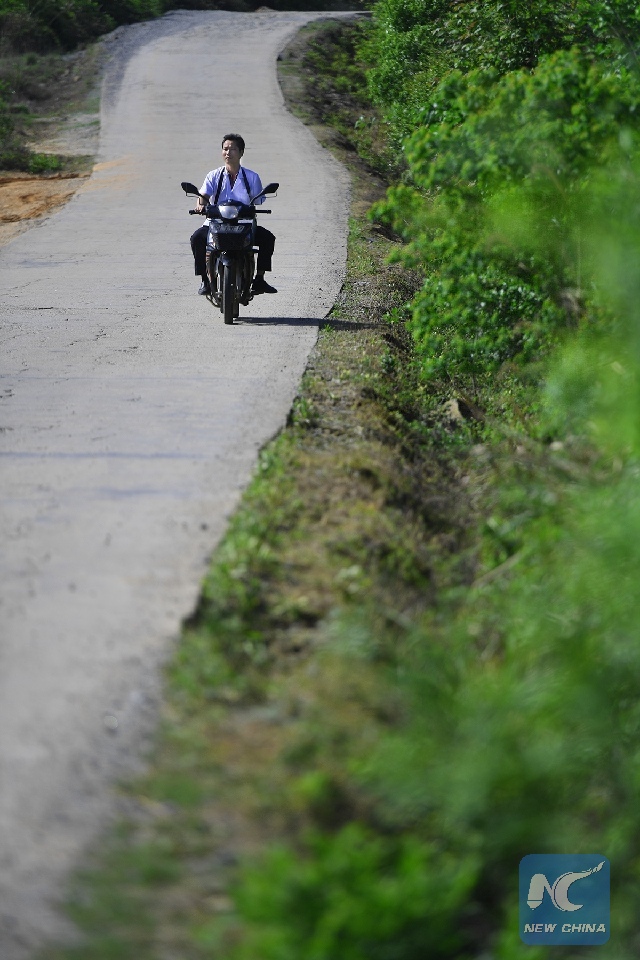
Li Yan is answering a patient's call on motorcycle. (Xinhua/Hu Chenhuan)
"This is my fifth motorcycle. I wore out all its predecessors!" he said. Over the past 27 years, he has clocked up at least 400,000 kilometers traveling door to door to answer his patients' calls.
When he was just 20 years old, Li was bitten by a snake, and as a result lost his left arm. Despite his own disabilities, Li is an exceptional practitioner who is always ready to rush to the aid of those under his care.
"Li is there whenever we need him - day or night, and he is always so patient and calm," said Wu Chunjin, whose octogenarian mother suffers from chronic rheumatism.
The lush, green mountains of Jiangxi do, however, hide hidden dangers, especially for one-armed motorcyclists. Heavy rain, dirt tracks, insufficient street lighting and the odd roaming animal are all daily hazards for Li.
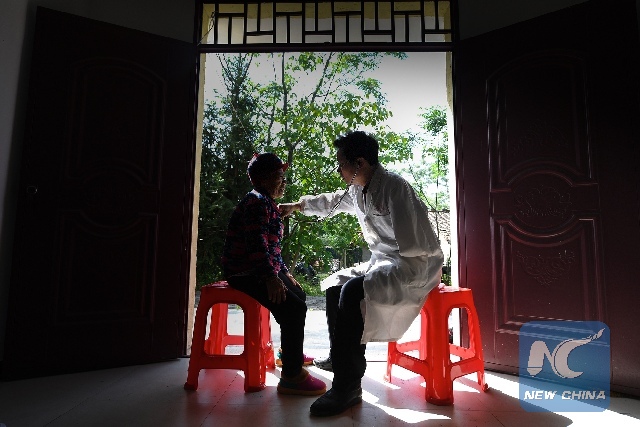
Li Yan is doing physical examination for a local resident. (Xinhua/Hu Chenhuan)
Once Li was found unconscious with eleven teeth missing after his bike hit a ditch. It is little wonder why Li's wife is worried whenever he goes out to answer a call.
Li continues regardless of the dangers; it is his duty. In underdeveloped rural areas, like Toupo, motorbikes are the quickest and cheapest way to reach elderly patients who often live alone.
Government initiatives are often slow to be implemented in rural areas that lack the supporting infrastructure. The Internet, however, has changed this. China's promotion of smart healthcare, while no substitute for physical treatment, has helped reduce menial work for health guardians like Li.
Li's mobile phone is his diary, reference tool, and, often times, memory support. It holds exhaustive health records of over 400 of his elderly patients. The data can be shared with their children, many of whom live in big cities far away from Toupo. There is still some grunt work that must be done. Li said it took him three months to travel across his ward and compile the data.
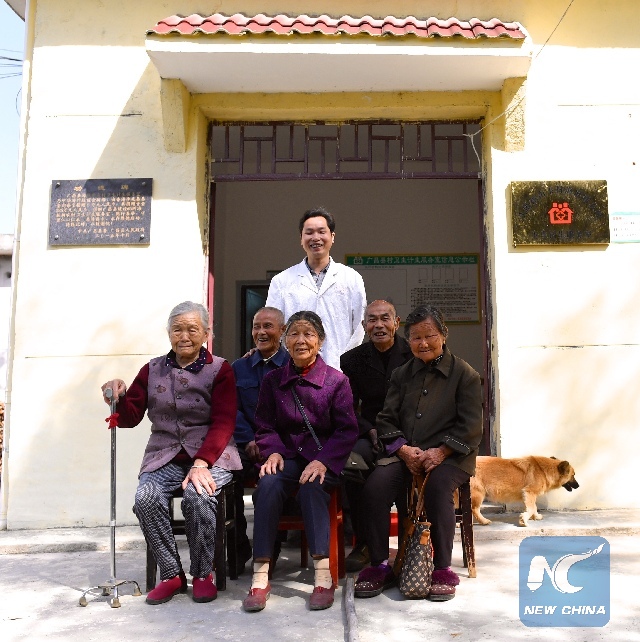
Li Yan and his patients at the local clinic. (Xinhua/Hu Chenhuan)
Li is especially adept at acupuncture.
"Even those who lose both arms can still practice calligraphy with their feet, so I am certainly able to treat patients with one hand," he said.
Li has developed an acupuncture method that uses three fingers of one hand. To guarantee accuracy and proper pressure, he practices on himself and does push-ups with these three fingers.
"In the beginning, my patients were a bit concerned about certain treatments, like injections, but they would be fine after they saw me in action," Li said. Over the decades, Li has become a specialist in treating cerebral infarction and sequela of apoplexy with acupuncture. More often than not, he waives his fee for many of his poor patients.
"They basically have no source of income, so this is one less thing for them to worry about," Li said.
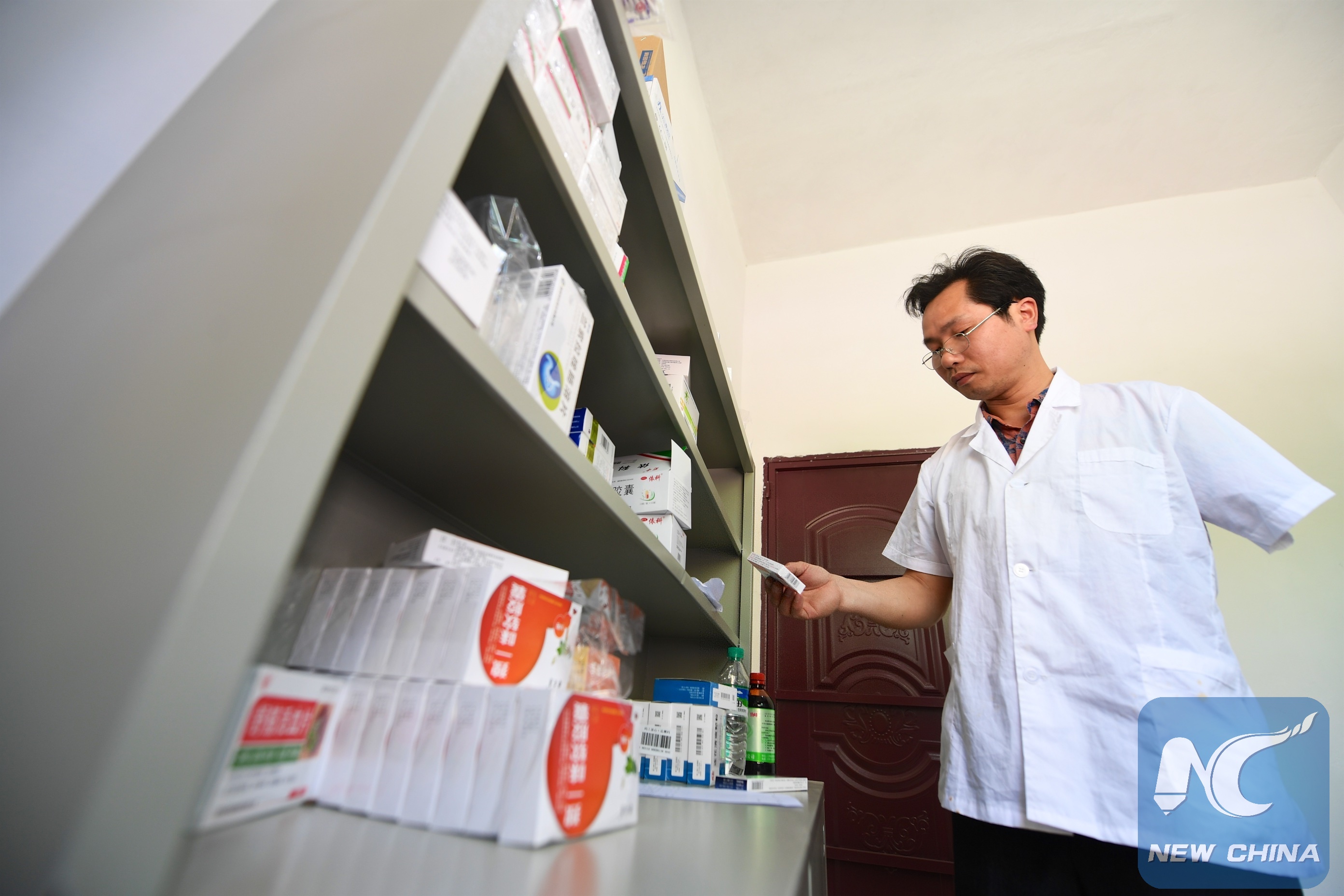
Li Yan is taking medicine for his patient. (Xinhua/Hu Chenhuan)
There are now 640,000 rural clinics and over a million rural doctors in China, and every clinic treats, on average, 2,900 patients annually, according to China's National Health Commission. People like Li are a lifeline for millions of rural residents in China.
"I lost one arm once, but it won't hold me back from helping those in need. That is what I have accomplished," Li said.

